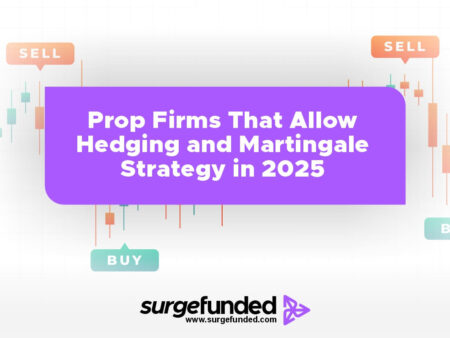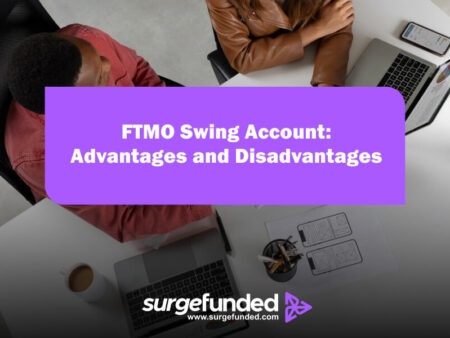In the realm of finance, investors are using platforms for futures trading more and more to diversify their portfolios and take advantage of market movements. With so many options in the market, selecting the best futures trading platform can be challenging. The top futures trading platforms, their features and how they may support traders in the futures markets will all be covered in this article.
Comprehending Trading Platforms for Futures
Investors can access and trade futures contracts through software programs known as futures trading platforms. A variety of features/characteristics are usually available on these platforms, such as order execution, risk management tools, charting tools and real-time market data. The best futures trading platforms are made to be simple to use, effective and safe. They give traders the resources they need to execute transactions well and make wise judgments.
Best Platforms for Trading Futures
The top futures trading platforms accessible right now include the following:
1. Overview of NinjaTrader:
Renowned for its sophisticated features and many customization possibilities, NinjaTrader is a well-liked futures trading platform. It provides a large selection of tools for back testing, automated trading and technical analysis.
Characteristics:
- Advanced charting: Offers a range of chart formats, indicators, and drawing instruments for comprehensive market research.
- Trading strategies can be created and tested by traders utilizing NinjaScript through automated trading.
- Supports trading across many asset classes, such as stocks, futures and currency. This is known as multi-market support.
2. The Trading Platform
Overview: A wide selection of tools are available for active traders on TradeStation, a complete platform for futures trading. It has an easy-to-use interface, automatic trading, and sophisticated charting.
Characteristics:
- EasyLanguage: Using a proprietary programming language, traders can develop and test their own trading methods.
- Support for several devices: Provides desktop, mobile, and web-based interfaces for trading while on the road.
- Broad market data: Offers historical and real-time data for a variety of asset types and marketplaces.
3. Overview of CQG:
CQG is a professional-grade futures trading platform renowned for its high-performance execution and low latency. For both active individual traders and institutional traders, it provides a variety of tools.
Characteristics:
- Direct market access: Offers quick and dependable order execution by giving direct access to exchanges and liquidity providers.
- Advanced analytics: Provides a number of tools for analyzing markets, such as volume profiles, heat maps, and sales and time data.
- Advanced security procedures are used by institutions to safeguard client funds and data.
4. Overview of Tradovate:
Designed for aggressive traders, Tradovate is a cloud-based futures trading platform. Many features are available, including mobile access, automated trading, and sophisticated charting.
Characteristics:
- Platform in the cloud: enables traders to use any internet-connected device to access their accounts.
- Trading automation: Provides a number of trading automation features, such as position sizing, alerts, and strategies.
- Competitive rates of payment: offers reasonable commissions and no additional costs when trading futures.
5. Overview of Rithmic:
Rithmic is a high-performance futures trading platform with dependable execution and minimal latency. For institutional clients and skilled traders, it provides a variety of tools.
Characteristics:
- Direct market access: Offers quick and dependable order execution by giving direct access to exchanges and liquidity providers.
- Advanced risk management: Provides a number of tools for managing risks, including as margin monitoring, stop-loss orders, and position restrictions.
- Advanced security procedures are used by institutions to safeguard client funds and data.
Factors to Take Into Account While Selecting a Futures Trading Platform Trading Style:
- Diverse trading strategies exist among traders, including swing, day, and long-term investment. Selecting a platform that meets your unique trading style and provides the required tools is critical.
- Cost Structure: Consider commissions, spreads, and any monthly membership fees that are related to using the platform. Your total profitability might be greatly impacted by competitive pricing.
- Customer Service: Having dependable customer service is essential, particularly for novice traders. Seek for systems that provide helpful assistance across a variety of channels, including live chat, email, and phone.
- Reputation and Reviews: Find out how well-liked the platform is in the trade community. It’s possible to gain knowledge about the platform’s dependability and user experience by reading reviews and testimonials.
Frequently Asked Questions
What is trading in futures?
- Purchasing and selling contracts for the future delivery of a financial instrument, commodity, or money is known as futures trading. Traders seek to make money off of changes in the underlying asset’s price.
What advantages come with using a platform for trading futures?
- Platforms for futures trading give traders access to a large number of markets, sophisticated tools for execution and research, and the capacity to successfully manage risk. They also include tools like back testing and automated trading.
How can I pick the futures trading platform that best suits my needs?
- Think about things like the variety of markets and instruments offered, the calibre of the trading tools and features, the platform’s dependability and performance, and the calibre of customer service when selecting a futures trading platform.
What dangers are involved in trading futures?
- Because of the leverage used and the volatility of the markets, trading futures involves a significant amount of risk. It is imperative for traders to have a comprehensive comprehension of the dangers prior to venturing into the market, as losses can exceed their initial investment.
Can I utilize a futures trading platform if I’m not an experienced trader?
- Even though futures trading platforms are made to be user-friendly, before beginning to trade futures, it’s crucial to have a solid understanding of the markets and trading techniques. Numerous platforms provide support and educational materials to assist novice traders in getting started.
How can I finance my account to trade futures?
- Although funding alternatives differ depending on the platform and broker, wire transfers, ACH transfers, and credit/debit card payments are commonly used. Before making a deposit, it’s crucial to read the platform’s funding guidelines and costs.
Can I utilize a futures trading platform and automated trading strategies?
- Indeed, a lot of futures trading platforms provide automated trading tools that let traders design and evaluate custom trading plans. For traders who wish to seize market chances fast and reliably, this can be a helpful tool.
Success in the futures markets depends on selecting the appropriate futures trading platform. From sophisticated charting and analysis to automated trading and risk management, the platforms covered in this article include a variety of features and resources aimed at assisting traders in becoming successful. Through meticulous assessment of available options and selection of a platform that corresponds with their trading philosophy and objectives, traders can harness the potential of the futures markets to provide substantial profits.

















